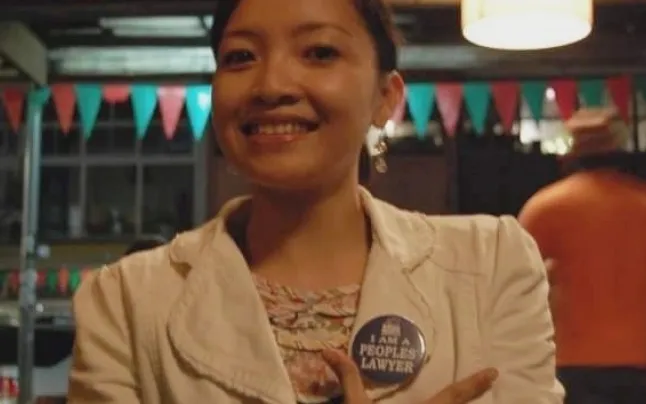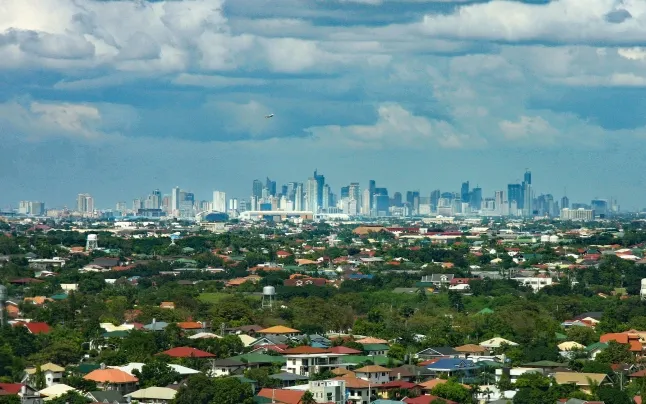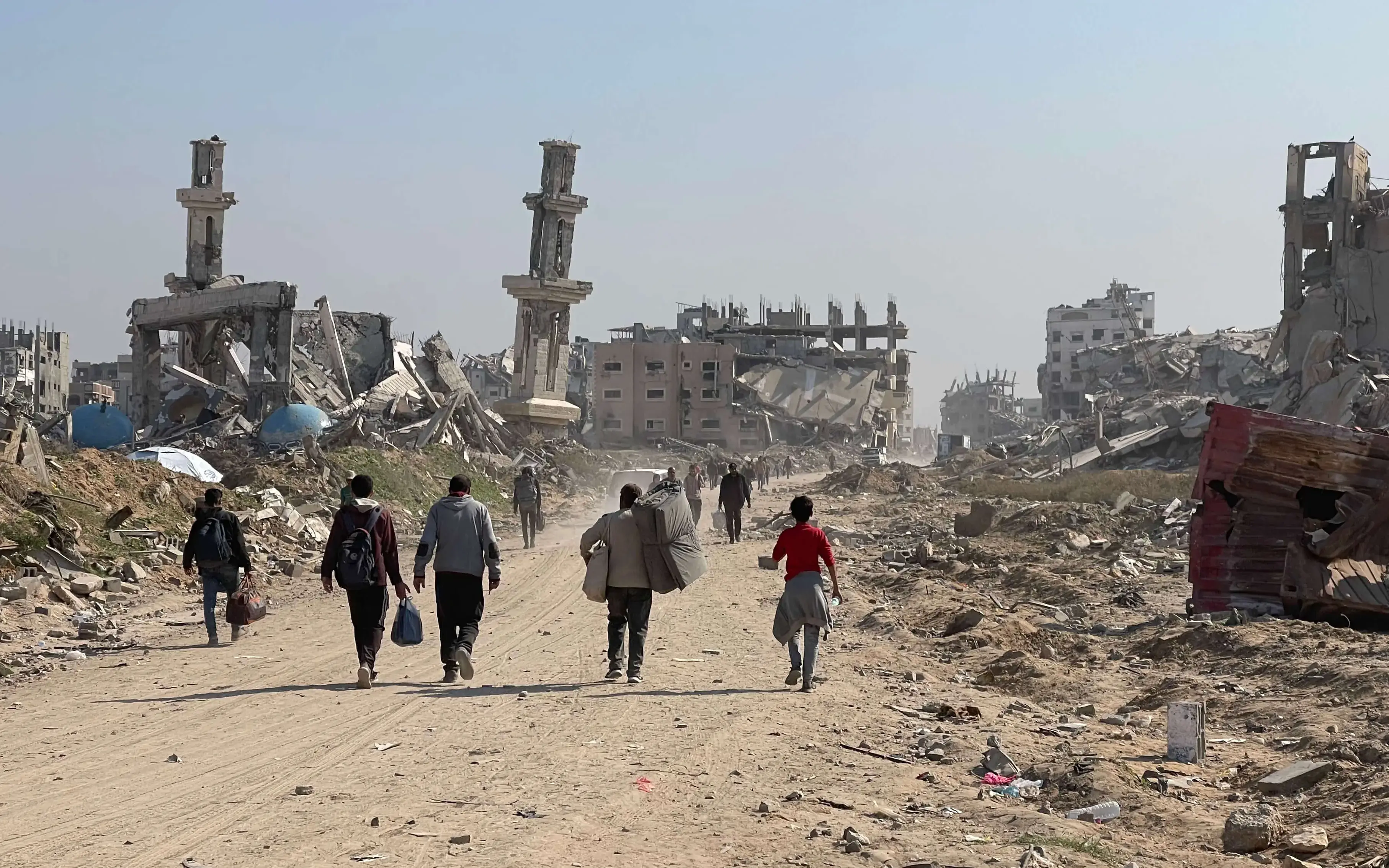The Karapatan organisation and alliance has been fighting for years against various governments in the Philippines to defend human rights, which have been constantly violated in the South Asian country.
Maria Sol Taule is an activist in the Karapatan organisation and a human rights defender in the Philippines, a country that is experiencing one of the longest blockades in the world due to the Covid-19 pandemic. But beyond the public and health emergency facing this country, what stands out are the policies of a government that has been trying for years to suppress any opinion contrary to the regime, often with measures similar to those of a dictatorship.
One of the latest decisions that have been made is to go ahead with the new Anti-Terrorism Act, instead of meeting the popular demand for massive tests to combat Covid-19. This law makes it possible for those who are considered "terrorists" to be arrested for a period that can last from four to 24 days, without charges, with constant surveillance, with no communication and with government authority to freeze the accounts of the detained individuals and organisations.
The problem is that often all those opposed to the government are considered terrorists. President Rodrigo Duterte has become famous for engaging in a practice called "red-tagging", carried out by government officials themselves to label activists, critics and human rights defenders as communists and terrorists. In the cases documented by Karapatan, they found that this pattern of "red-taggings" preceded the murders, kidnappings and illegal arrests carried out by the Duterte government.
On November 9th the activist took part in the virtual meeting "Human rights defenders facing the pandemic: threats, challenges and resistance", by Ciutats defensores dels Drets Humans (Human Rights defending cities).
How would you define the Karapatan Alliance Philippines?
Karapatan is an organisation in the Philippines that is at the forefront of human rights advocacy. It was founded in 1995 and is an alliance of organisations that has regional teams documenting rights violations in remote areas and helps in the campaigns of problems that affect the population.
Karapatan also helps victims and political prisoners and files court cases, while working with the United Nations, international NGOs and various parliaments to address human rights issues in the country.
What are its main goals?
We have several: one is education and training, with the aim of raising people's awareness of their rights, helping to develop their ability to fight and defend their rights, and promoting participation in campaign activities, including promoting the development and dissemination of education modules and seminars; another is campaigning and advocacy, which seeks to achieve a strong public opinion and support for human rights issues and concerns, with activities to promote campaigns and information.
Another goal is programme services, which mobilize various resources for the welfare and needs of political prisoners, torture victims, relatives of missing persons and victims of extrajudicial killings... This goal is also focused on the formation of quick reaction teams that respond immediately to cases of human rights violations such as arrests, kidnappings, people being exiled, violence by pickets and others, as well as conducting fact-finding missions to investigate various human rights violations.
You also do documentation and research.
Yes, we collect information on particular cases of human rights violations and on the situation of these rights in the country. We maintain a database of all cases of human rights violations, like a file library, which includes court documents and other evidence to be filled out by government agencies, a joint monitoring committee, and international human rights departments.
Finally, we aim to create networks and alliances, with which we want to motivate organisations, groups and individuals to get involved in human rights issues and Karapatan activities and programmes. We also establish partnerships with genuine multisectoral alliances and people's organisations. As an alliance, Karapatan works directly with member organisations and brings together the programmes of the various human rights organisations under its control.
Have you achieved changes in the Philippines since Karapatan exists?
Personally, I have been working as Karapatan’s legal counsel for the past three years, but have been in the organisation for eight years total, five of them as a legal assistant. I have witnessed how governments have implemented totally “anti-people” policies during these years. The current government is no different, but the human rights violations have become more blatant and obvious because the authorities know that they can get rid of the crimes with total impunity, often encouraged by the policies of the president himself.
Since President Duterte came to power in June 2016, there have been several attacks on human rights in the Philippines. What is the human rights situation in the country now? What is your main battle?
The human rights situation in the Philippines has worsened. Many people we know have been murdered or are imprisoned because of false accusations. Karapatan members have also been charged with cases that have been filed by government officials themselves. Freedom of expression and freedom of the press are also openly attacked, as evidenced by the government's order to close down the country's largest television station. Many organisations are threatened with closure with allegations of funding terrorism.
To legalise all these blatant attacks by the government against its “enemies”, they implemented the Anti-Terrorism Act of 2020, which will make mass arrests and attacks on the people possible. Our fight now is to ask the government to stop persecuting people who only want to exercise their rights, especially that of freedom of expression, and ultimately to get rid of the Anti-Terrorism Act, which will only lead to more state-sponsored abuses.
Is the international community fighting Duterte's policies? Do you think you should be getting more support from other countries or the United Nations?
Karapatan is constantly working with other organisations to collect signatures of support from the international community, including parliaments, international NGOs and even the United Nations. We have secured significant support from European Union countries, especially with regard to the resolution initiated by Iceland to investigate human rights abuses in the Philippines.
However, we still have a lot of work to do, such as solidarity tasks with other countries, especially members of the Human Rights Council, now that a resolution has been published calling for “technical assistance” in the Philippines amid human rights violations. Many European countries have pointed to Duterte’s policies that violate human rights in the Philippines.
What is it like to be a human rights defender living in the Philippines?
It’s very unsafe. We are constantly attacked by the current government. I have already mentioned how many people have been murdered and arrested in the four years that the current president has been in office, and we still have two more years to go. We always fear for our lives, our safety and that of our families. Right now, our only defence is the collective action against these attacks and the support of our allies and the international community, actively calling for an end to these human rights violations in the Philippines.
Members of the press and activists are constantly harassed. Could you give us more information about this?
The Philippine government launched a systematic attack on activists using every resource and mechanism to identify people who are against it. It uses judicial harassment by filing false accusations against anyone who criticises it. The largest television station in the country is ABS-CBN, and it was recently closed down by the government.
Many journalists and lawyers have also been murdered during the Duterte government. Rights advocates are threatened, or at least being portrayed as terrorists/criminals to the public. All these violations have a terrifying effect on anyone who wants to express their opinion and is not in favour of the government —anyone who shows opposition will be retaliated against.









Add new comment